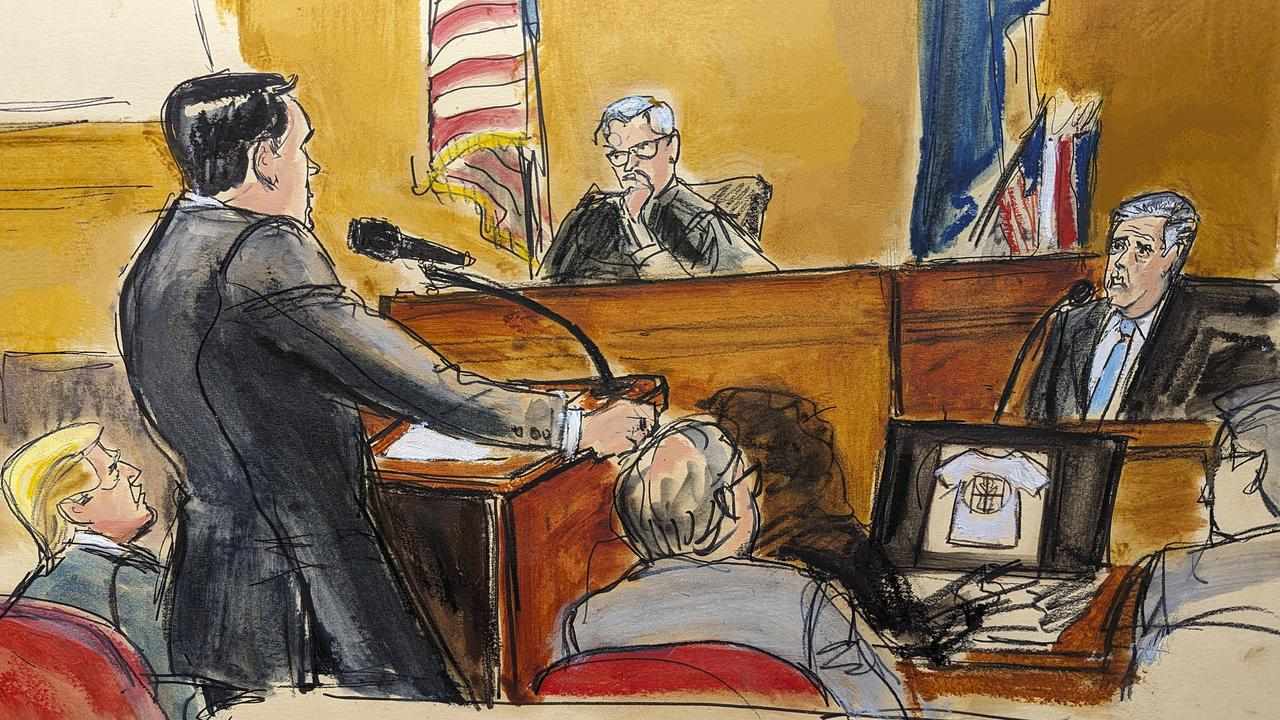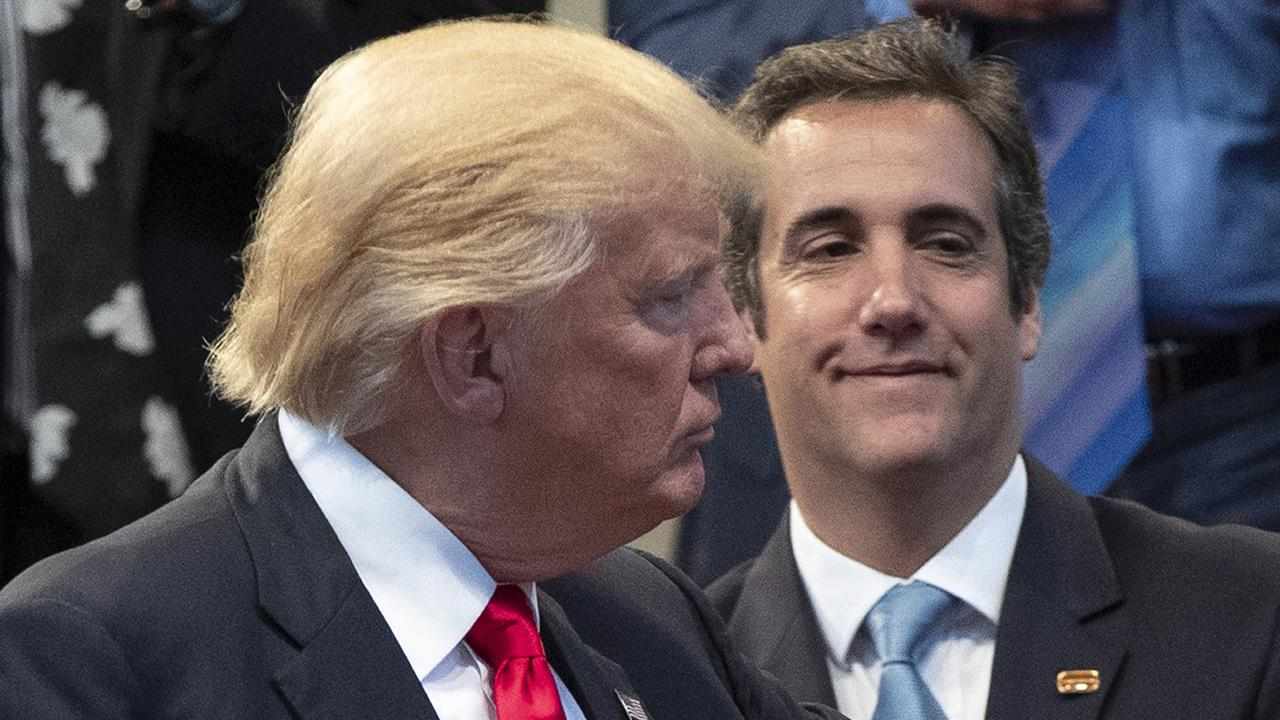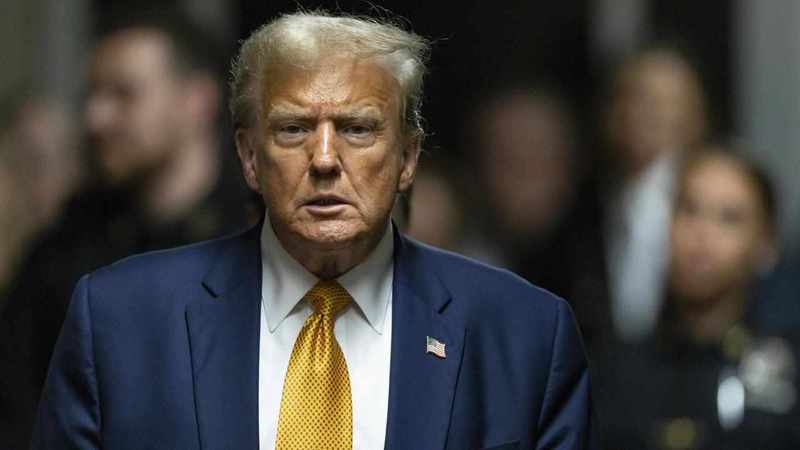Donald Trump's former fixer Michael Cohen has sustained a withering assault from the Republican presidential candidate's legal team, as Trump's defence lawyers seek to undermine Cohen's testimony that Trump was intricately involved in a scheme to buy a porn star's silence.
In sometimes aggressive questioning on Tuesday, Trump lawyer Todd Blanche confronted Cohen about his schoolyard taunts, including calling the former president a "dictator douchebag," a "boorish cartoon misogynist" and a "Cheeto-dusted cartoon villain," and Cohen's record of dishonesty.
Cohen, who spent more than a decade working as Trump's fixer, had already answered prosecutors' questions for about nine hours on the witness stand on Monday and Tuesday.
He testified that Trump ordered him to pay adult film star Stormy Daniels in 2016 to stay quiet about an alleged 2006 sexual encounter, lest it torpedo his presidential campaign, and then approved a plan to reimburse Cohen through a series of bogus invoices.

But Cohen's chequered history - he served time in federal prison for various crimes, including the hush money payment, and has admittedly lied under oath - offered Trump's lawyers an obvious target, once they were free to question Cohen themselves.
Through about two hours of cross-examination, Blanche had yet to ask Cohen about the $US130,000 ($A196,000) payment at the heart of the case, instead combing methodically through Cohen's extensive public comments about Trump over the years to underscore his transformation from Trump loyalist to foe and his pattern of deception.
Blanche also suggested Cohen was motivated by money, revenge and notoriety rather than justice, asking Cohen about the millions of dollars he earned from two tell-all memoirs and the millions of subscribers to his frequently anti-Trump podcast.
The defence showed jurors pictures of Trump-themed merchandise for sale on Cohen's website, including mugs reading, "Send him to the big house, not the White House."
Cohen is the prosecution's star witness at Trump's historic trial, which started on April 15 and appears to be nearing an end; prosecutors told the judge on Tuesday that Cohen would be their final witness. His cross-examination will resume on Thursday, after a scheduled day off for the trial on Wednesday.
Prosecutors say Trump paid Cohen back after the election by creating false records indicating they were for legal fees. Those disguised reimbursements provide the basis for the 34 counts of falsifying business records that Trump faces.
Trump, 77, the 2024 Republican presidential candidate, has pleaded not guilty and denies any sexual encounter with Daniels. He has characterised the case as a partisan attempt to interfere with his campaign to take back the White House he lost in 2020 to Democratic President Joe Biden.
Cohen, 57, said he lied multiple times to Congress during an investigation into Trump's Russia ties, eventually pleading guilty to perjury. He also told jurors he lied repeatedly to journalists and others about the Daniels scandal.
Cohen pleaded guilty to federal crimes in 2018, including offences related to the Daniels payment, and said he was acting at the behest of Trump, who was not charged.
"I regret doing things for him that I should not have," Cohen said on Tuesday when asked to reflect on his many years working for Trump.
"To keep the loyalty and to do the things that he asked me to do, I violated my moral compass. And I suffered the penalty - as has my family."

In October 2016, Cohen said, he learned Daniels was shopping her story to tabloids. At the time, the Trump campaign was in crisis mode after the release of an audio recording in which Trump bragged about grabbing women's genitals.
"He said to me, 'This is a disaster, a total disaster. Women are going to hate me,' Cohen told jurors Trump had said.
Cohen testified Trump was solely concerned about the impact Daniels' story could have on his White House bid - and not, as Trump's lawyers have suggested, about the effect on his wife and family. That distinction is crucial to the prosecution's case.
The Manhattan trial is considered less consequential than three other criminal prosecutions Trump faces, all of which are mired in delays.
The other cases charge Trump with trying to overturn his 2020 presidential defeat and mishandling classified documents after leaving office. Trump pleaded not guilty to all three.









